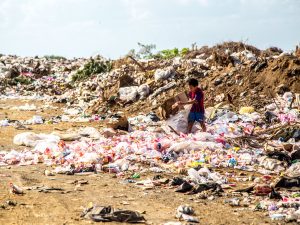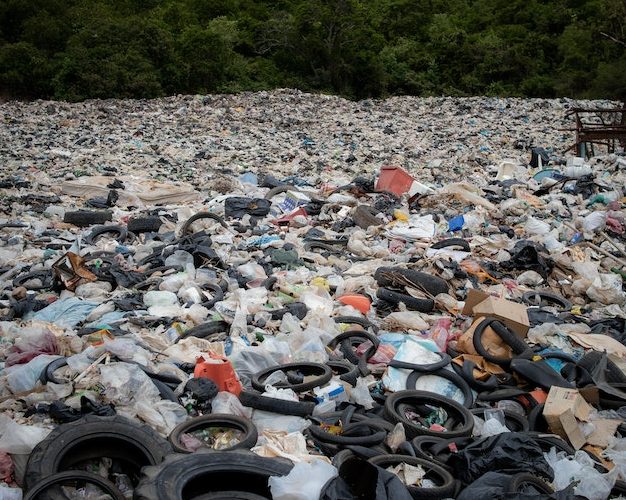In February 2025, Technology Development Board (TDB), a statutory body under the Department of Science and Technology (DST) under India’s Ministry of Science & Technology, signed an agreement with Navi Mumbai-based APChemi.
APChemi is a pioneer in plastic and biomass pyrolysis with 12 patents (including five granted) and has developed a transformative technology that converts non-recyclable, end-of-life plastic waste into high-value, refinery-grade pyrolysis oil.
Their patented PUREMAX™ technology offers an innovative and cost-effective method for purifying pyrolysis oil and making it suitable for producing PUROIL™, a feedstock validated by leading global petrochemical and FMCG companies for food-grade circular plastics.
The pyrolysis process involves heating plastic waste in an oxygen-free environment to break it down into smaller hydrocarbons. The result is a synthetic oil or gas that can be refined and used as a feedstock for producing new plastics or fuels.
Under this agreement, the Technology Development Board has sanctioned financial assistance, reaffirming its commitment to fostering indigenous technological advancements in sustainability.

With the global plastic waste crisis escalating—where less than 10% of the 350 million metric tonnes generated annually is effectively recycled—this project is poised to accelerate plastic circularity by processing 1.2 to 6 kilotonnes of waste per year.
It can help reduce the massive amounts of plastic waste that accumulate in landfills in many parts of India.
Additionally, it is expected to generate approximately 100 jobs while significantly curbing plastic pollution and lowering carbon emissions associated with incineration and landfilling.
One of the key strengths of this technology lies in its capability to process complex multi-layer packaging waste containing PET and PVC, with an impurity removal efficiency of up to 99.7% for chlorine.
This breakthrough has garnered interest from eight global corporations, including Shell, BASF, Unilever, and PepsiCo, which have issued Letters of Intent for integrating PUROIL™ into their supply chains to advance plastic circularity.
Furthermore, significant scientific experiments and technological interventions are happening to convert plastic waste into useful products, promoting circularity and enhancing waste management.
In 2019, Council of Scientific & Industrial Research (CSIR) has signed Memorandum of Understanding (MoU) with Delhi Development Authority (DDA) and Municipal Corporations of Delhi for setting up of a plant to convert waste plastic to diesel and tiles using technologies developed by CSIR-Indian Institute of Petroleum (CSIR-IIP), Dehradun and CSIR-National Physical Laboratory (CSIR-NPL), Delhi.
CSIR-Indian Institute of Chemical Technology (CSIR-IICT), Hyderabad has a technology for converting different plastic waste to value-added products such as green plasticizers, fuel oil, preparation of monomers and hydrogen.
Department of Chemicals and Petrochemicals (DCPC) has set up 18 Centres of Excellence (CoE) to promote research on recycling process technologies, development of eco-friendly processes and products to minimize waste generation, reduce energy consumption, utilize renewable feedstocks, development of biodegradable and bio-based chemicals for various applications, etc.
These innovations to convert plastic waste into useful products are essential on many counts as they help to reduce the environmental impact of plastic waste, create new opportunities for resource recovery and provide jobs.
However, the process requires significant energy and can release harmful emissions, including carbon dioxide, carbon monoxide, and other volatile organic compounds, which could harm the environment if not properly managed.
Further, it does not solve the root problem of plastic pollution, overproduction and excessive plastic consumption.
Wrapping Up
Converting plastic waste to oil might offer a temporary solution to reduce existing plastic waste and provide an alternative energy source, but it’s not a perfect or long-term fix.
It could be part of a broader strategy for managing plastic waste, but it needs to be combined with efforts to reduce plastic production, improve recycling, and shift toward more sustainable materials. It’s a step forward, but not the ultimate answer to plastic pollution.






Add comment